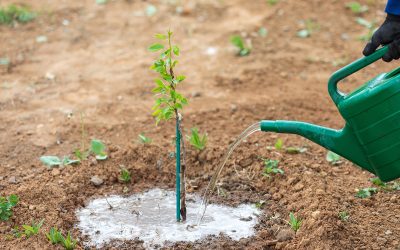Marmalade

This week I have been making marmalade. There is something soothing about marmalade making, particularly on a cold January day. The gentle rhythm of chopping the peel, of taking time with it (marmalade cannot be rushed) makes it almost a ‘mindful’ exercise. The end result is a jar of jewel-bright tangy delight, and a kitchen scented with citrus and spice.
I love the story of Keiller’s Dundee Marmalade. The legend is that James Keiller speculatively bought a consignment of oranges for his grocery business. Unfortunately, the oranges were Sevilles, not the sweet oranges he was hoping for. Being bitter there was no market for them. It was his mother, Janet, who took the whole consignment and made them into marmalade, which did sell, at a premium. Thus, she saved business from what could have been economic disaster.
What I love about this story is how something seemingly worthless is transformed into something of beauty and value. It reminds me of how God takes us, when we might feel broken or worthless, and, by his grace, transforms us, uses us, accepts us, as we are, complete with all our idiosyncrasies. God never waits for us to change or be perfect before we are loved. Like the father in the story of the Prodigal Son, God loves us just as we are, never stops loving us, even when we mess up.
There is a phrase that I have often heard in many a prayer meeting (and some worship songs) which rather disquiets me. It runs along the lines of; ‘Lord, I am unworthy, how can you look at me, let alone love me? I am not worthy to come into your presence’. There is a problem with this. God has always considered us to be ‘worthy’ of his love. We are always objects of God’s love. In fact, there is never a time when God doesn’t, or hasn’t loved us. As it says in the Wisdom of Solomon,
‘there is nothing that God has created that God does not love: God cannot hate anything that he has created’.
Wisdom of Solomon 11:24
And Paul reminds us that God
‘demonstrated his love for us in that ‘while we were still sinners Christ died for us’.
Romans 5:8
This then is in direct contradiction to the teaching I received as a young Christian. I was taught, as I know millions of others were, that because of my sin, because I hadn’t said a prayer ‘inviting Jesus into my heart’, because of God’s utter holiness, God couldn’t even bear to look at me. I remember a big evangelist explaining that when we have said the sinner’s prayer, we are covered by the blood of Jesus so that God doesn’t see us but sees Christ’s sacrifice. Only when I had said the ‘sinners’ prayer’ could God turn his face toward me, until that point, I was unworthy, destined for an eternity of conscious torment in hell.
When we look through the bible, we don’t see God acting like this. Nowhere does it say we have to ‘invite Jesus into our hearts’ before God can love us. Nowhere does it say that I am unworthy of God’s love, that God couldn’t love us as we are as his creation. Think about some of the characters: God didn’t wait for Jacob to stop being a conniving, deceitful and supplanting grabber before he was loved and blessed by God. Hagar, Sarah’s Egyptian slave might not have been the matriarch of Israel, but God spoke directly with her, which he didn’t do with Sarah. She was blessed and loved. The list goes on and on, even in the New Testament there is no record of the disciples, Peter and the others ‘becoming Christians’, saying ‘the prayer’ before they are loved and accepted. Instead, they are called to follow, as they are. Goodness, Peter denied Jesus, Judas betrayed him, the others simply ran away when the going got tough, and Paul is out to persecute and kill them, all because he believes that the followers of Jesus are unworthy of God’s love and therefore life! Yet God loves each passionately, seeking to bring blessing, life and longs for each to reach their full potential as beloved children of God, longing for each to become more like his Son, Jesus, not through their efforts alone – we can never pull ourselves up by our bootstraps, but through the graceful working of the Holy Spirit in us, transforming us as we live in obedience to God. And even when we fail, God is never done with us, but picks us up, dusts us down, heals and restores us before sending us on our way.
So, back to my marmalade. The bitter oranges regarded by some as worthless are indeed precious jewels. Their skins are not bright and shiny, but dull and sometimes knobbly. There are more pips than juicy flesh, and the juice is extremely bitter. I do not have to wait for the oranges to become sweet before I will give them value, they are valued and cherished for what they are, just as God cherishes us and values us for who we are. As has been said many times before; ‘There is nothing we can do that will make God love us less, and nothing we can do that will make God love us more.’ When I claim to be unworthy of God’s love, I am denying God’s intrinsic character, I am deciding whether or not God could love me, or others. In fact, I am telling God what he can and cannot do and therefore perhaps asserting my own dominance over God’s character, trying to elevate myself above God.
It’s good to know that we are valued, precious, created and loved for who we are now and not what we might be in the future. It’s good to know that God doesn’t wait until we are perfect Christians before we are loved and blessed. It is through the creative work of the Holy Spirit in our lives we will be transformed to be who we are really meant to be, (not what others think we should be) and we can shine like bright jewels in a world that has forgotten how much they are valued and loved for simply being who they are. Perhaps we are all like the Seville Orange: seemingly useless, but in reality, precious, useful and able to reflect God’s glory in a dark world.
Fran Bellingham
Slow – A long journey home
Fran took part in the Unlock Walk this year. Here are some musings from her experience.
Being Baptist
As part of our bible study, we look into what it means to be Baptist. This lesson reminds us of our responsibilities as well as the historical relevance of being Baptist.
Are we there yet?
As Christians we do ask this question a lot. But what is the answer?
Working with patience
Fran uses the pear tree to illustrate why patience can often pay off
The Mothers’ Day Card
Fran talks about a card that brings back special memories
Slow
Spring is taking its time to make an appearance. What can we learn from waiting for things to happen?
God’s call to ministry
As Fran prepares for her ordination, she reflects on the journey that has brought her to this moment and how you can listen out for God’s calling
Pancakes
Shrove Tuesday means pancakes but what can we learn from this age-old custom of preparing for Lent
Compassion
This week is Compassion Sunday and Fran reflects on how the church could use this opportunity to become actors and not spectators.
Verse for the year
Every year we choose a corporate verse that gives us a focal point for the year. Fran tells us what it is and how it was chosen.









